This page provides answers to the following questions:
If you suffer from an injury that occurred while you were at work, you must report the injury to your employer. Upon notifying your employer, the employer is expected to complete a First Report of Injury form and submit it to the Utah Labor Commissions Division of Industrial Accidents within seven (7) days. The employer should also contact the insurance provider with information about your injury.
If you pursue medical care or attention, you should let your doctor know that your injury occurred while at work or in the course of your work responsibilities. Your doctor is then expected to submit a Physician’s Initial Report of Injury or Illness to the Industrial Accidents division within seven (7) days of the initial consultation.
With the exception of certain categories of employers, all employers are expected to provide workers’ compensation insurance to their employees. Commonly, employers will purchase a coverage policy from a certified insurance provider. Your employer should have the relevant insurance information posted at the workplace or readily available to employees. If you are confused about whether your employer provides insurance, you may search your employer with the Utah Labor Commission.
In Utah, workers’ compensation is a no-fault system. However, certain findings may prevent you from claiming benefits. For example, intentionally self-inflicted injuries will not be covered by your employer’s insurance provider. Another example would be if your injury was the result of intoxication due to alcohol or illegal drug use.
The state workers’ compensation scheme provides that wage replacement and medical care for injuries resulting from a work-related accident or illness be provided. These benefit areas are further divided into subcategories included medical care, disability benefits, wage replacement and burial benefits. You may receive a varying amount of benefits depending on whether you qualify for benefits in the relevant categories. This will depend on the particular circumstances of your claim.
Medical Care: payments for all reasonable and related medical procedures and treatment will be paid by your employer’s insurance provider.
Wage Replacement: payment for the loss of wages related to your injury. This will depend on the extent of your injuries and the time you are incapable of returning to work. Wage replacement due to injury is categorized as follows:
- Temporary Total Compensation: Wage replacement paid to you in you are unable to return to work as a result of your injury for three (3) or more days. These payments will continue until you are able to return to work.
- Temporary Partial Compensation: Wage replacement to compensate the difference between your pre-injury wages and your post-injury wages in cases where you are able to return to work but at a lesser capacity.
- Permanent Partial Disability Compensation: Compensation for permanent impairment caused by your work-related injury. A doctor must determine that you have reached your maximum medical improvement and then subsequently assign a rating to the extent of your impairment. Benefits will correspond to the impairment rating.
- Permanent Total Disability Compensation: Benefits available to you if your work-related injury causes permanent impairment so that you are unable to return to work, whether your former employment or new employment.
Death Benefits: If your work-related injury result in your death, your surviving family, dependents, or estate may be entitled to certain monthly payments and funeral and/or burial expenses.
When your employer notifies the insurance provider regarding your injury, your insurance provider will review the report and make a determination about whether to accept liability for your accident. If your claim is denied by the insurance company, first speak to the workers’ compensation claims adjusted to see if the denial is the result of missing information; in this case, supplying the relevant information could resolve the dispute. If this is not the case, contact the Industrial Accidents Division to get some more information regarding what your options may be. You may decide that you would like a hearing to resolve the dispute, in which case you should file an Application for Hearing with the Labor Commission’s Adjudication Division. This will initiate a mediation process to settle the claim. If your dispute remains unresolved, an Administrative Law Judge will oversee a hearing and make a decision regarding your claim.
Submitting the application for a hearing initiates a formal adjudication process. It is like a court-process, somewhat like a trial. Both sides will be able to provide written statements of the issues, evidence, present oral testimony, and file motions. This process may be tricky; while you are not required to obtain an attorney, you may find that in your specific case an attorney will help you navigate through the process.
You or the opposing party may submit a Motion for Review within thirty (30) days of receiving the Administrative Law Judge’s decision. The case will then be referred to the Labor Commissioner or Commission Appeals Board. The Appeals Board has the ability to affirm, amend, modify or reverse the Administrative Law Judge’s findings.
If you remain unsatisfied with the determination at this point, all appeals must be made to the Utah Court of Appeals. All court rules and procedures will be applicable to proceeding with the case.
